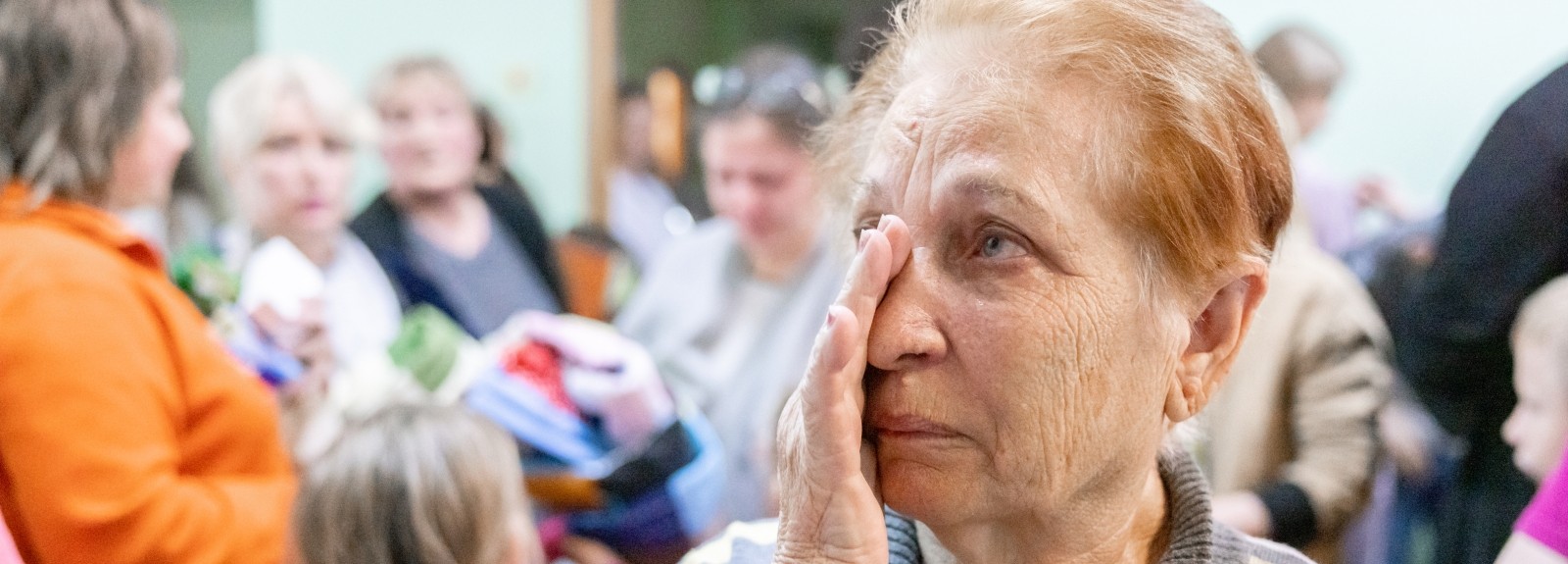"They can't take a breath. They can't exhale." At a center in Poland, Olena Saratova is talking about her fellow Ukrainian refugees, especially the mothers. Over the course of days or weeks, these women had to keep their loved ones safe — first while hiding in bomb shelters, next on packed trains, and finally in the unfamiliar new surroundings where they’d fled.
"The maternal instinct kicks in. They continue to protect and take care of the children or the elderly who have come here with them," says Olena. But after weeks of terror and unrelieved tension, the women are exhausted — yet still too keyed up to rest.
For mothers and children, intense psychological trauma
Ukrainian mothers try to hold themselves together for the sake of their children and prevent even more trauma. Kristina hid with her three children in a school basement for two weeks. She sat next to the school desks she had them sleep on to protect them from the damp, making sure they didn’t roll off.
"The moment I realized that I needed to take the children and leave was when I brought my little girl out of the basement, just to get clean and eat," she goes on. "She started to howl. Just like dogs do. It was such an inhuman howl. She was scared, she kept returning to the basement.
"At that moment there was very intense booming and shooting, something flew across the sky,” she says. "It was terrifying, and I realized that I had to go to another country — simply to keep her psyche from completely collapsing." Now safe in Gdansk, a city in Poland, Kristina receives emergency cash grants, thanks to your support.
Displaced Ukrainians struggle to regain mental balance
Millions more Ukrainians fled their homes but are still inside Ukraine, escaping to safer areas. Many of them are now at centers for displaced people, and for those who cannot afford housing there, your gifts fund their stays. “At first, their nervous system was in a very shaky state,” says Oksana, a health worker at one of the centers.
“People were traumatized by explosions and more. Some are withdrawn, some are overexcited, some are aggressive. They react to stimuli like loud noises,” says Lyubov Chevankudashkina, a psychologist at another center. She herself escaped the bombing and now volunteers her time, holding talk therapy sessions with the people there.
Finding peace in nature
The fact that the centers in Ukraine are green spaces surrounded by trees helps. "Here we have recovered mentally, being in nature. You go outside and feel the way a normal human being should feel," says a woman named Olena Klochko. "There are flowers, squirrels, hedgehogs."
But mental health needs in both the short and long term are massive. “People need human warmth and kindness. This war has made people lose their faith in humanity,” says Lyubov. Support from donors like you is helping fund mobile clinics going to hard-to-reach parts of Ukraine, with plans to include mental health professionals.
Meanwhile, the safety net that your generosity is providing in Ukraine and Poland helps mothers find equilibrium as they try to figure out what comes next. "We want to tell them, ‘That's it, no need to run, you can have some rest here,’” says Olena Saratova. "'Take a breath and regain some strength.'"


